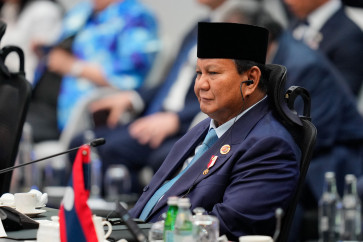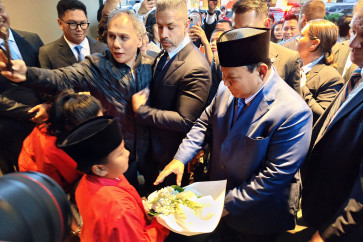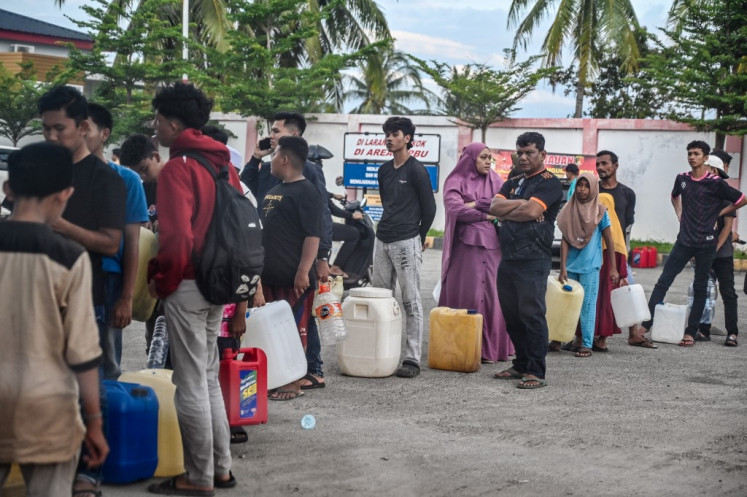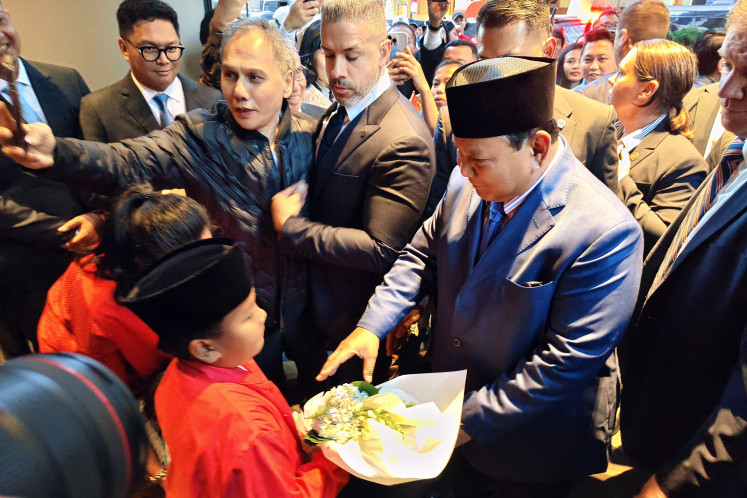Popular Reads
Top Results
Can't find what you're looking for?
View all search resultsPopular Reads
Top Results
Can't find what you're looking for?
View all search resultsBuilding the ASEAN Political-Security Community
ASEAN member states (AMS) are facing challenging political and security issues in the region, including an arms race, corruption, the development gap and the impact of it, ethnic clashes and intolerance, human trafficking, human rights abuses, an illicit drug trade, migration, money laundering, social injustice, terrorism, territorial maritime disputes, and other forms of transnational crimes
Change text size
Gift Premium Articles
to Anyone
A
SEAN member states (AMS) are facing challenging political and security issues in the region, including an arms race, corruption, the development gap and the impact of it, ethnic clashes and intolerance, human trafficking, human rights abuses, an illicit drug trade, migration, money laundering, social injustice, terrorism, territorial maritime disputes, and other forms of transnational crimes.
Through political and security development cooperation among the AMS, the ASEAN Political-Security Community (APSC) is institutionally framed to effectively manage these issues. The APSC constitutes one of the three pillars supporting the ASEAN Community ─ alongside ASEAN Economic Community (AEC) and ASEAN Socio-Cultural Community (ASCC). Under the APSC blueprint, which provides a roadmap and timetable, the APSC will be established by 2015.
Promoting political development based on the principles of democracy, the rule of law and good governance, promotion and protection of human rights and fundamental freedoms — as inscribed in the ASEAN Charter — the APSC, according to its blueprint, will “ensure the people and member states of ASEAN live in peace with one another and with the world at large in a just, democratic and harmonious environment”.
However, in a recent interview with Channel News Asia, ASEAN’s newly-installed secretary-general, Le Luong Minh, voiced concern over the slow progress toward building an ASEAN Community, including the APSC, by 2015. “We are not on track. A lot of work still needs to be done,” he said.
One of the major problems impeding the progress of establishing the ASEAN Community and the APSC is the slow pace of ratification and program implementation by the AMS.
In addition to the weak political commitment of the AMS, this slow progress may also be attributed to the insufficient power of the ASEAN Secretariat to coordinate, monitor and “direct” the policies, programs and activities of the ASEAN and the AMS in achieving the APSC. With its inadequate operational budget, the ASEAN Secretariat functions like an ASEAN post or liaison office.
The ASEAN Secretariat cannot correct and direct the AMS policies, programs and activities from the proposed actions and programs planned in the APSC Blueprint. The ASEAN Summit, as the highest decision-making body, is also weak in enforcing and “punishing” the AMS to comply with the rules, principles, and purposes contained in the ASEAN Charter.
Moreover, the recent conflicts affecting the AMS show that the institutional framework of the APSC is weak in resolving disputes and maintaining peace in the region. The cases of the South China Sea and Cambodia-Thailand territorial disputes, trans-boundary haze pollution and Rohingya human rights issues demonstrate how such an institutional framework is not effective in managing and resolving the problems.
“To maintain and enhance peace, security and stability in the region”, as stipulated in Article 1 of the ASEAN Charter, the institutional and legal framework of the APSC should be strengthened. The ASEAN Charter should be reviewed to give more power to the ASEAN secretary-general to act not only as a liaison officer, but also as a coordinating “minister” for ASEAN Community and foreign affairs. He or she and the ASEAN Secretariat would function as a policy-coordinating and policy-making body. However, this Secretariat may also propose new policies or revisions to the ASEAN Summit for approval.
As a “foreign minister” of the ASEAN, the secretary-general may also act as an intermediary to settle the conflicts and disputes among the AMS. For instance, in the case of the ASEAN’s failure and disunity in making a joint communiqué on the South China Sea dispute at the Phnom Penh Summit last year, he should have done “shuttle diplomacy” to resolve the conflicts.
ASEAN cannot rely on an AMS foreign minister to take the initiative for acting on such preventive diplomacy. In such an event, what if the Indonesian Foreign Minister Marty Natalegawa or other qualified high officials from the AMS were not willing to take the initiative to settle the difference or other forms of conflicting interests? The
secretary-general, therefore, should be empowered to do the job.
To strengthen democracy, enhance good governance and the rule of law and protect human rights and fundamental freedoms, the political and legal cooperation under the APSC blueprint should be designed and directed to “integrate” the political and legal systems of the AMS. For this purpose, ASEAN should adopt strong conventions on anticorruption and good governance, maritime disputes, environmental protection, human trafficking, illicit drug trade, extradition and mutual legal assistance, money laundering and other forms of transnational crimes.
To enforce these conventions, ASEAN must have a court that has the power to adjudicate disputes among the AMS and punish (transnational) crimes committed in ASEAN’s jurisdiction. Therefore, to make this court work effectively, the AMS should carefully and clearly redefine and reinterpret the scope and definitions of “sovereignty”, “non-interference”, and “territorial integrity” principles stipulated in the ASEAN Charter.
The writer is an international law and policy analyst at the Cabinet Secretariat of Indonesia. The views expressed are his own.










